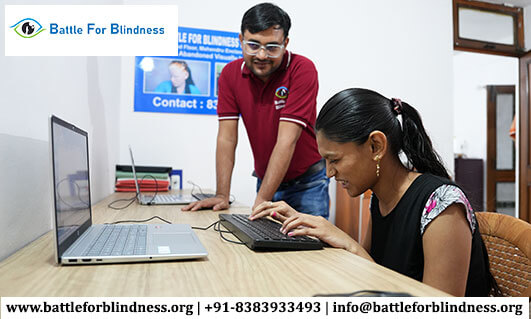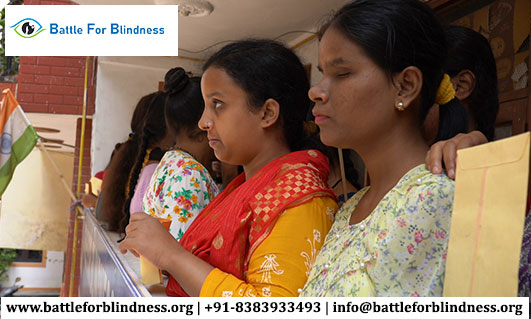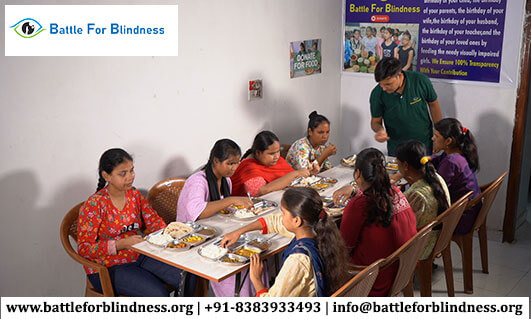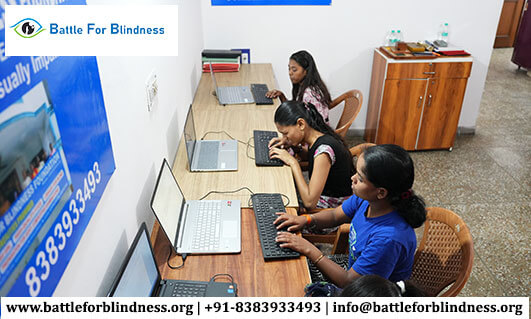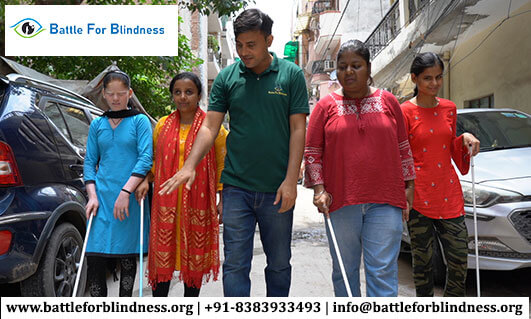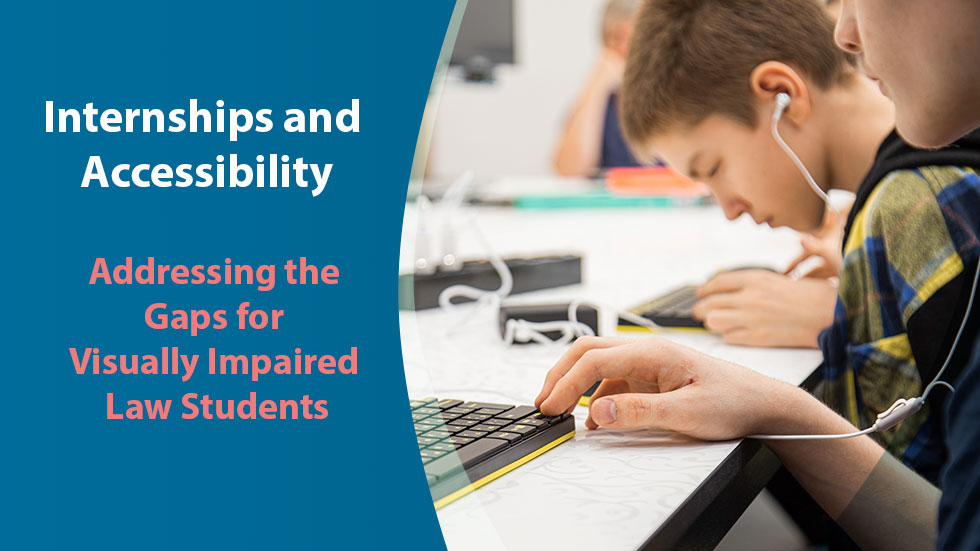
Internships and practical training are essential components of legal education, providing students with the hands-on experience necessary to succeed in the legal profession. However, for visually impaired law students, securing these opportunities can be fraught with challenges. Despite their qualifications and capabilities, systemic barriers often hinder their access to valuable internships, limiting their ability to gain practical experience. This blog explores the challenges faced by visually impaired law students in gaining internships and practical training and offers strategies to promote inclusivity in legal education.
1. The Importance of Internships in Legal Education
Internships provide law students with critical opportunities to apply theoretical knowledge in real-world settings. They facilitate networking, skill development, and a deeper understanding of the legal profession. For visually impaired students, practical training is vital not only for building competence but also for fostering confidence as they transition from academic settings to professional environments. However, many visually impaired students encounter obstacles that can deter them from pursuing internships.
2. Challenges Faced by Visually Impaired Law Students
Inaccessible Application Processes: Many internship application processes rely heavily on online platforms that may not be fully accessible to visually impaired students. Websites, forms, and application systems that lack screen-reader compatibility can create significant barriers. As a result, students may miss out on opportunities simply due to technical difficulties.
Stereotypes and Bias: Stereotypes about the capabilities of visually impaired individuals can lead to bias in the hiring process. Employers may unconsciously assume that visually impaired students are less competent or less capable of performing certain tasks. This bias can result in fewer internship offers and reduced opportunities for practical training.
Limited Availability of Supportive Mentorship: Finding mentors who understand the challenges faced by visually impaired law students can be difficult. The lack of supportive mentorship can leave students feeling isolated and unsure about how to navigate the internship landscape effectively.
Workplace Accessibility Issues: Even if visually impaired students secure internships, workplace environments may not always be accessible. From physical barriers in office layouts to inadequate technology, the lack of accessibility can hinder their ability to perform tasks effectively, impacting their overall experience and learning.
Networking Barriers: Networking plays a crucial role in securing internships. Visually impaired law students may face challenges in networking events, where visual cues and interactions are essential. This can limit their opportunities to connect with potential employers and mentors.
3. Strategies for Overcoming Challenges
Promote Accessible Application Processes: Law schools and legal organizations should advocate for accessible internship application processes. This includes ensuring that online platforms are compatible with screen readers and providing alternative application methods, such as phone interviews or accessible forms.
Raise Awareness and Combat Bias: Legal institutions must work to combat stereotypes and bias surrounding visually impaired individuals. This can involve training for employers on inclusivity and diversity, highlighting the strengths and capabilities of visually impaired law students.
Establish Supportive Mentorship Programs: Law schools can create mentorship programs that connect visually impaired students with experienced legal professionals who understand their unique challenges. Mentorship can provide guidance, encouragement, and valuable insights into navigating the internship process.
Advocate for Workplace Accessibility: Legal organizations should prioritize accessibility in their workplaces. This includes conducting audits to identify and address barriers, providing necessary assistive technologies, and fostering a culture of inclusivity.
Encourage Inclusive Networking Opportunities: Legal education institutions can facilitate networking events that accommodate the needs of visually impaired students. Providing virtual options and structured networking formats can create more inclusive environments for all students to connect with professionals in the field.
4. The Role of Law Schools and Organizations
Law schools, legal organizations, and employers play a pivotal role in creating an inclusive environment for visually impaired law students. By actively implementing policies that promote accessibility and inclusion, these institutions can significantly enhance opportunities for practical training and internships.
Creating Inclusive Policies: Law schools should develop and enforce inclusive policies that prioritize accessibility in all aspects of the internship experience, from application to placement.
Building Partnerships with Employers: Law schools can partner with employers who are committed to diversity and inclusion, encouraging them to create accessible internship programs that cater to the needs of visually impaired students.
Providing Resources and Support: Legal institutions should offer resources and support services tailored to the needs of visually impaired students. This can include workshops on resume writing, interview skills, and navigating the internship process.
Conclusion
Internships and practical training are vital for all law students, but visually impaired students often face unique challenges that can impede their access to these opportunities. By addressing barriers in the application process, combating bias, and promoting inclusive practices, legal education institutions and organizations can create a more equitable environment for visually impaired law students.
Empowering these students with the support and resources they need will not only enhance their educational experiences but also contribute to a diverse and inclusive legal profession. By advocating for change, we can ensure that all aspiring lawyers, regardless of ability, have the chance to thrive in their careers.
